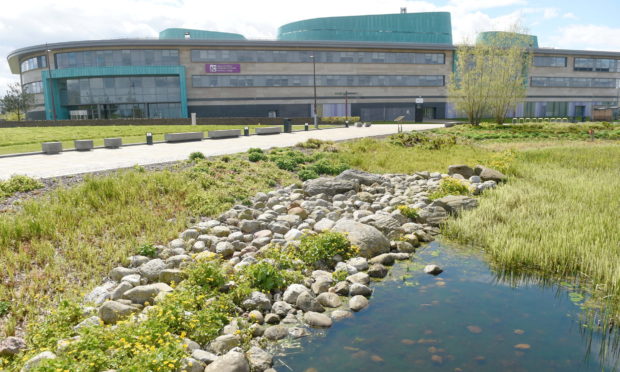Student leaders have urged the Scottish Government to investigate a “financial crisis” at the University of the Highlands and Islands as one of its colleges plans to shed jobs to save £800,000 over the next year.
The students have also called for changes to the university’s senior management structure to cut costs.
Inverness College UHI said the coronavirus pandemic has heightened financial concerns and is now consulting on staff costs, including a voluntary severance scheme.
It is committed to avoiding compulsory redundancies, where possible.
The college, which employs 420 staff, is one of the largest partners in the 13-strong UHI network of institutions.
Principal Chris O’Neil said the college and university sectors face significant challenges amid rising costs and decline in core income.
Increases in staff pay and pension contributions, along with rising costs of services and a drop in student numbers nationally, have contributed to financial pressures.
“The impact of Covid-19 only serves to heighten an already precarious financial environment, with both Colleges Scotland and Universities Scotland forecasting deficits of millions of pounds for the sectors,” he said.
“We recognise this is a particularly challenging time for everyone and we are committed to working with our staff to achieve these savings in a way that minimises impact on them and our students.”
Highland and Islands Students Association (HISA) urged Education Secretary John Swinney to intervene.
HISA Inverness president, George Gunn, said: “We understand the need for savings given the dire financial situation but would encourage the board to look at the dozens of senior managers employed across the university.
“At a time of financial crisis for both the college and university sectors and the wider world, the university should be doing everything it can to save its staff and preserve the standard of the student experience.
“We are now formally calling on the Scottish Government to investigate the current financial crisis at the University of the Highlands and Islands as a matter of urgency.”
He said if action is not taken job losses will become “endemic”, but said the high level of teaching and student support at the college should not be jeopardised.
“It’s time to end the politics currently preventing our institution from reaching its fullest potential,” Mr Gunn added.
“John Swinney needs to step in and save our university, our staff and our students.”
Garry Coutts, chair of the university’s court, said he sympathised with the students and that senior managers are committed to helping the institution adapt to meet their needs.
He said the university must develop by streamlining business processes and simplifying decision making to ensure maximum resources are focused on students, researchers and the wider community.
Mr Coutts added that altering the partnership structure would require changes to legislation, the convergence of multiple management systems and the wholesale review of terms and conditions of service for over 3,000 staff.
“The vision set out by HISA is one that everyone on the university court and the boards of management across the partnership need to consider and work to deliver to enable the University of the Highlands and Islands to fully play its part in post Covid-19 economic regeneration,” he said.
“I hope my fellow governors will rise to the challenge with the same passion, imagination and creativity our students have shown.”
The Scottish Government said the college sector has been awarded a resource increase for 2020/21 of £33.5 million and it is working to mitigate the impacts of coronavirus.
A spokesman said: “Colleges and universities are responsible for their own operational decisions and the Scottish Funding Council works closely with institutions to monitor their financial health.
“We will continue to invest heavily in our colleges and universities to deliver successful outcomes for all.”
